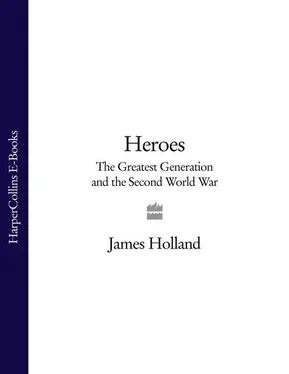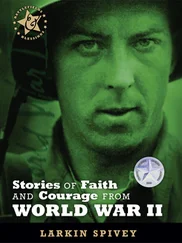Around that time, it was decided that groundcrew should sometimes fly in the aircraft they were working on – this was seen as a means of ensuring their work was up to scratch. Bill enjoyed this aspect of the job and could soon tell when the pilots were making mistakes. He began thinking it would be more fun to be flying and so suggested to George that they re-muster as aircrew. To get in, they had to pass an IQ test, but they’d done several of these back at school and knew the form. Both of them finished their exam in half the time allowed and both passed, and so they were sent to Ground School at Edmonton in Alberta. Their subsequent medicals revealed them to have perfect 20:20 eyesight, and so having scraped through their algebra and geometry tests, they were sent to High River, Alberta, to begin training as pilots.
Initially, they flew Tiger Moths, open cockpit biplanes, before progressing to twin-engined Cessnas. As long as there wasn’t too much snow about – and for the most part they were training during the summer months – Canada was an ideal place to learn, with its vast open expanse of country. In December they both passed their wings examination and were told they’d been earmarked to become instructors. The brothers had both been hoping they would be going to England and so were disappointed. ‘We were gung-ho,’ Bill admitted. They were saved, however, by a couple of Australians who’d been training with them, and who had fallen in love with Canadian girls and were desperate to stay in Canada. ‘I don’t know whether it was the girls or they just didn’t want to go into combat,’ said Bill, ‘but we told them that if they could arrange it, we were happy to switch. They did, and so we went overseas.’
That was in January 1943, but before they left for war, they were given a couple of weeks’ leave and were able to spend one last Christmas with their family. Their mother was worried about them going, but Bill was not especially apprehensive. ‘We had no idea what war was about,’ he said. They crossed the Atlantic on board the former liner, Queen Elizabeth, zigzagging all the way to avoid the Wolf Packs. By the time they reached Scotland, however, Bill was starting to feel pretty ill. Before he knew it, he was in hospital in Glasgow with acute appendicitis. Worse, he’d been separated from his brother again, who had been sent with the others to a holding camp in Bournemouth while they waited to be posted elsewhere. Bill got out of hospital as quickly as he could – a few days after his operation he told the civilian doctor that he was discharging himself. ‘You can’t,’ the doctor told him, but Bill insisted, so the doctor sent him to the RAF for a medical. ‘What’s all the bother about?’ asked the Medical Officer.
‘I want to get to my brother,’ Bill told him.
‘Where is he?’
‘In Bournemouth.’
‘I don’t blame you,’ the MO told him. ‘I’m going down there myself in three weeks,’ and with that, he let Bill go. He wasn’t really up to it though. Having had his stomach muscles cut to reach his appendix, Bill was suffering from the undue stress this was placing on his back. ‘It was at least a month before I was really fit to fly,’ he confessed. But he did find his brother – eventually. Unbeknown to him, George had moved into a private boarding-house. Nonetheless, Bill worked out that most of the airmen had to walk past the park on their way to the mess, so he went there and sat on a bench and waited. Eventually he saw two WAAFs walking with a familiar-looking Canadian pilot – about five-foot-eight, and with his dark brown hair combed back into a neat quiff.
‘Hi George,’ said Bill as they walked up.
‘Bill, you’re here!’ exclaimed George.
Bill recalled the WAAFs’ surprised faces. ‘They looked at him and then they looked back at me,’ he told me. ‘It was funny – they were thunderstruck.’
Bill liked Bournemouth. They were just kicking their heels but they played a little golf and went to shows and he soon began to build his strength back. The life of leisure soon came to an end, however. Since their arrival they’d hoped they would be sent to fly fighters, but it was not to be. Both Bill and George were to be trained as bomber pilots. It was at RAF Pershore that they were allocated their crews. Bill Morison, Bill’s navigator, remembers how hard it was to tell the brothers apart. ‘They really were identical,’ he said, when I spoke to him on the phone. ‘It caused quite a bit of confusion to start with.’ After a further three months flying Oxfords and Wellingtons, they were then sent to Croft, for conversion onto Halifaxes. This was quite a jump. Four engines were a lot more to handle than two. Furthermore, the aircraft was that much bigger. ‘The Halifax was a pretty fair-sized airplane,’ pointed out Bill, ‘and you had to get used to the different attitudes. On take-off, for example, there was slight swing, and you needed more speed to get airborne. There were all kinds of different settings. And when you landed, because the Halifax was so much taller, you hit the ground sooner.’
Bill and George joined 429 Squadron at the very end of September 1943. The squadron had been formed in November the previous year at East Moor, some ten miles north of York, then flew its first operational mission over the Ruhr two months later. In August the squadron had moved to Leeming, further north between Richmond and Northallerton, and by then the operational centre of the all-Canadian 6 Group of Bomber Command. The twins arrived at a time when the American Eighth Air Force and British Bomber Command were bombing enemy targets round the clock, the Americans by day and the British by night. The bomber war would prove fearsomely dangerous for every man that took part until the very end of the war, but in the autumn of 1943, Nazi Europe was still heavily defended by an enormous array of over 50,000 anti-aircraft guns, many of which operated in conjunction with tracking radar. In the German industrial area of the Ruhr, some anti-aircraft guns were even mounted on railway cars, which followed incoming bomber streams and kept them under continuous attack. And the skies were still held by the Luftwaffe. Particularly perilous for the night-time bomber crews were the German night-fighters, guided by increasingly sophisticated radar systems. By the autumn of 1943, forward German radar units on the Atlantic and North Sea coast were tracking the radio traffic of squadrons as they took off, with individual aircraft selected for interception. Unbeknown to a bomber crew, its fate might already have been marked before it had barely heaved itself into the sky. German night-fighters were fast, agile and ferociously armed; skilled bomber pilots could and did successfully evade them but the odds were not good, to put it mildly.
Bill and George knew little about any of this. Like most new crew, they were hopelessly ignorant and naïve with regard to what lay in store for them. They had no access to the kind of information enjoyed by those higher up the chain, and although they were aware of the basic aims of the bomber war, they did not think about any wider issues such as the relationship between the British and the Americans, or the overall strategy, or whether these endless bombing raids were actually achieving very much. Rather, they arrived eager to get on and do their bit and excited to be finally part of a real, active, front-line squadron.
Unlike the Americans, Bomber Command sent its aircraft up over Europe with only one pilot, but new arrivals were not given the controls straightaway; rather, they spent a couple of missions as a ‘2nd Pilot’ in order to give them an idea of what to expect. Bill and George went on their first combat missions over Europe as 2nd Pilots on 3 October 1943, George getting airborne at 6.45 p.m., Bill, the next in line, just three minutes later. The target was Kassel, an industrial centre to the east of the Ruhr. It was a good day for the squadron. Two aircraft returned early because of mechanical failure, but the rest reached their intended destination, dropped their bombs and returned home safely, just under six hours after they’d set off.
Читать дальше












